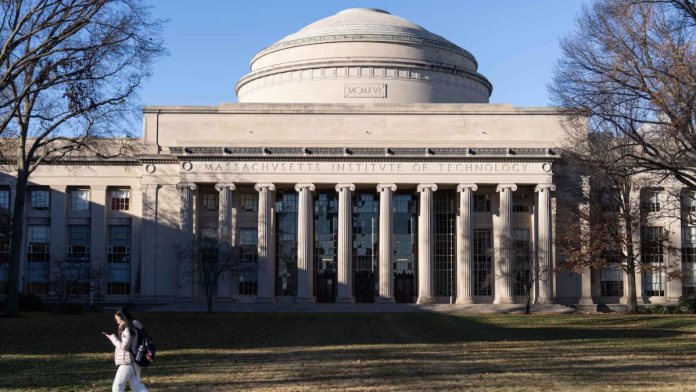The Massachusetts Institute of Technology (MIT) has become the first major U.S. university to reject a new proposal from the Trump administration known as the “Compact for Academic Excellence in Higher Education.” The government sent this 10-point compact to several top universities, asking them to agree to new rules in exchange for continued access to federal research money.
MIT President Sally Kornbluth announced that the school would not sign the compact. She explained that MIT already meets or exceeds many of the government’s listed standards and that the university’s values are based on its own long-standing mission, not outside pressure.
The compact, according to reports, included strict conditions such as limiting the number of international students, freezing tuition for five years, changing how gender is defined, and banning campus units that criticize conservative political ideas. It also asked schools to focus on what it called “merit-based” admissions and hiring.
MIT’s decision to reject the compact marks a rare public break between one of the country’s most respected universities and the federal government. It also highlights growing tension between political leaders and higher education institutions over issues like academic freedom, diversity, and federal funding.
The Compact and Its Demands
The Trump administration sent the compact to nine leading universities, calling it an effort to restore “academic excellence” and “common sense” in higher education. The government said universities that agreed would receive continued or even expanded federal support for research and programs.
But the compact came with several conditions. Among them were limits on the number of foreign students a university could enroll, a rule to freeze domestic tuition rates for at least five years, and a requirement to follow a strict definition of gender. It also demanded that schools shut down departments or offices that, in the administration’s view, “punish or belittle” conservative ideas.
White House spokesperson Liz Huston said universities that refuse the compact were “bowing to radical, left-wing bureaucrats” rather than serving students or parents. The administration claimed the measures would restore fairness and balance in higher education.
MIT’s leadership, led by Kornbluth, said that while the university deeply values merit and excellence, it could not accept a proposal that restricts academic independence or limits who can study and teach there. MIT prides itself on rewarding merit and maintaining access to education for students from diverse backgrounds.
MIT receives more than $600 million each year in federal research funds, supporting scientific projects, technology development, and studies in health, defense, and engineering. Rejecting the compact could place some of that funding at risk, but Kornbluth emphasized that the decision was based on principle, not money.
Growing Reactions Across Campuses
MIT’s decision immediately drew attention from other universities and academic communities. At Dartmouth, history professor Bethany Moreton praised MIT for rejecting what she called “an unconstitutional and unlawful attempt to exert power over higher education.” She said it was “heartening” to see a major institution stand firm.
Erdogan Hails ‘New Era’ with Trump: Halkbank Sanctions Near End, F-35 Deal Resurfaces
Several faculty groups at other schools have urged their administrations to reject the compact. At Brown University, President Christina H. Paxson said the school was engaging with the community to decide how to respond, while hundreds of faculty members had already signed a petition opposing the proposal.
Student groups at MIT also supported the move, saying that accepting the compact would have opened the door to further government control and weakened the school’s independence. Ariel White, an MIT political science professor, described the compact as “a ransom note” disguised as an invitation, warning that rejecting it could bring federal pushback.
While the Trump administration claimed that universities refusing the compact were undermining science and excellence, many educators argue that true academic freedom is impossible under political interference. MIT’s stand highlights the tension between government oversight and university independence.
Eight other universities, including Ivy League and top public institutions, are still reviewing the proposal. Faculty, students, and administrators continue to debate whether to sign or decline, with MIT’s rejection serving as a high-profile example of standing up for academic values.
Kornbluth concluded that MIT remains committed to its long-standing partnership with the federal government, emphasizing that the university’s mission to serve the country through research and innovation will continue, regardless of political pressures.


